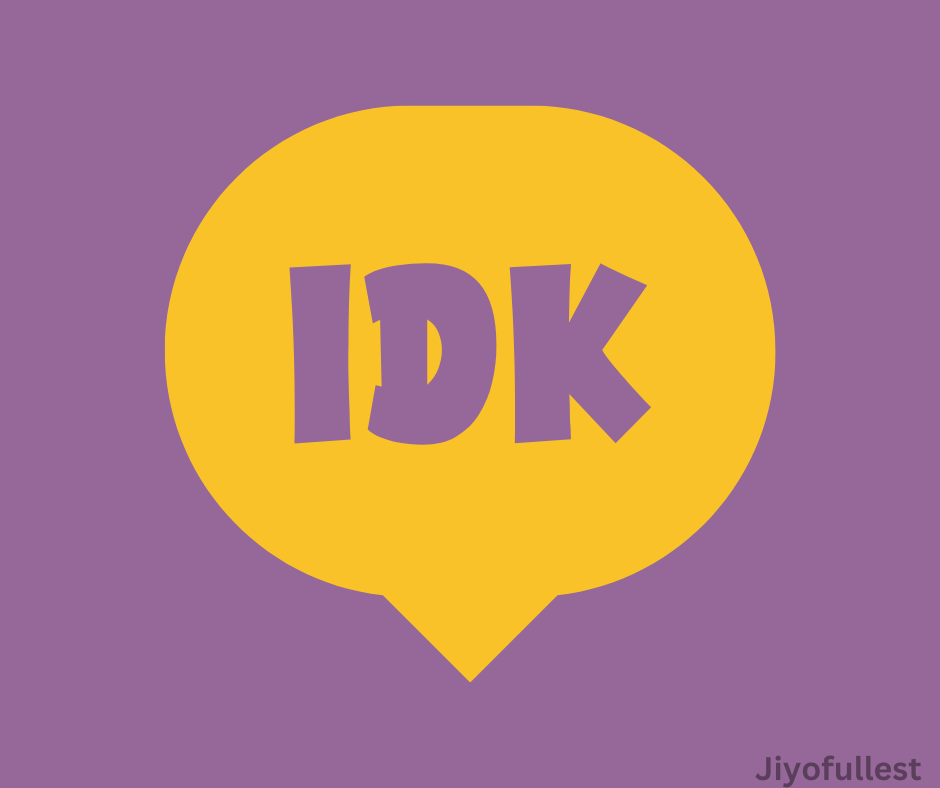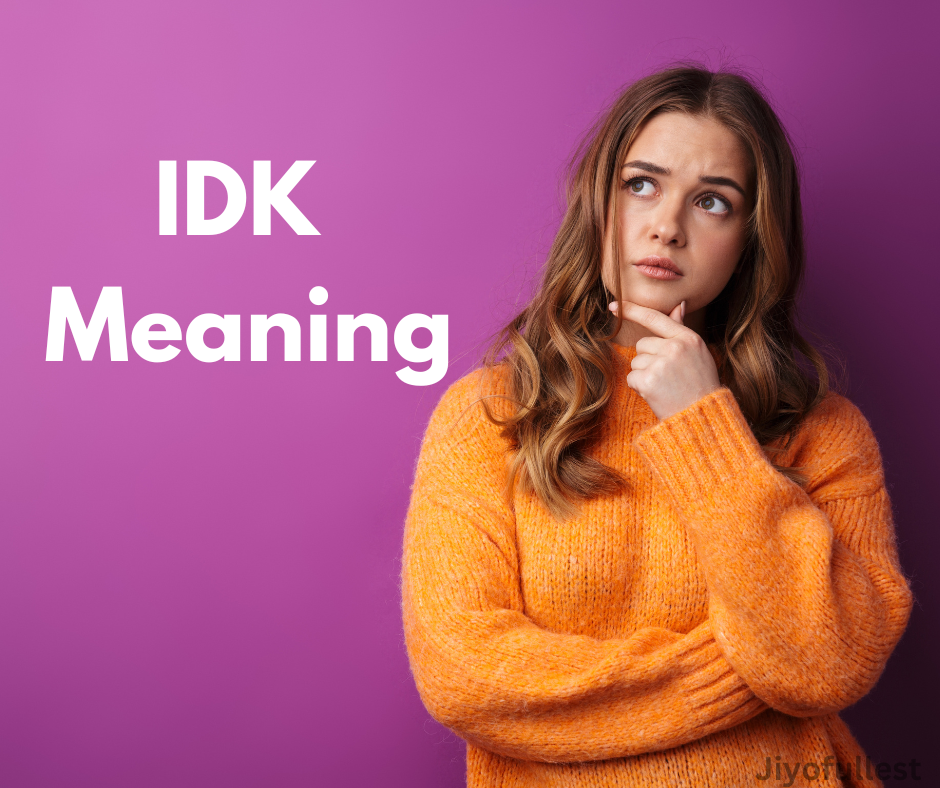In day-to-day communication, you’ll often come across the acronym “IDK.” Understanding such abbreviations is crucial for effective digital communication. Using them correctly can save time and ensure your messages are clear.
Table of Contents
ToggleMeaning of IDK
IDK stands for “I Don’t Know.” It’s a concise way to express uncertainty or lack of information, frequently used in texting, social media, and casual conversations.
History and Origin
IDK emerged from the early days of Internet chat rooms and instant messaging. As digital communication became more prevalent, abbreviations like IDK were adopted for their efficiency and convenience. Over time, IDK has become a staple in online and mobile communications.
How to Use IDK
It is versatile and can be used in various contexts to express that you are unsure or unaware of something. It can be used in both casual and slightly formal conversations, depending on the relationship with the recipient.
Examples of Using IDK Effectively
In Casual Texts
- Friend: “What time does the movie start?”
- You: “IDK, I’ll check and let you know.”
In Professional Emails
- Colleague: “Do you have the latest sales report?”
- You: “IDK the exact figures, but I will follow up with the finance team and get back to you.”
On Social Media
- “IDK if I can make it to the meetup tomorrow, but I’ll try!”
In Work-related Messages
- Team Member: “Are we meeting at 3 PM today?”
- You: “IDK, I’ll confirm with the manager.”
In Personal Invitations
- Invitation: “Can you attend the birthday party this weekend?”
- You: “IDK yet, I’ll let you know closer to the date.”
Alternatives to IDK
Here are some alternatives you can use instead of “IDK”:
- I don’t know
- I’m not sure
- I have no idea
- I’m uncertain
- I’m not aware
- I’m clueless
- I’m not informed
- I can’t say
- I haven’t a clue
- I need to find out
These phrases convey the same meaning while fitting different contexts and levels of formality.

Formal vs. Informal Usage
Informal Communication
IDK is perfectly suitable for informal settings such as texting friends, casual emails, or social media posts. It conveys a relaxed and approachable tone.
Formal Communication
In professional or formal settings, it’s best to avoid using IDK. Instead, opt for the full phrase “I don’t know” to maintain professionalism. For example, “I don’t know the answer to that question, but I will find out and get back to you.”
Common Mistakes
Misinterpretations and Incorrect Usage
Tips for Avoiding Mistakes
- Use this only in contexts where it is clear that the recipient will understand it.
- Avoid using this in formal communications.
- When unsure, spell out “I don’t know” to ensure clarity.
Related Acronyms
Other Similar Internet Slang
- BRB: “Be Right Back”
- TTYL: “Talk To You Later”
- FYI: “For Your Information”
Brief Explanations
- BRB: Indicates a temporary absence.
- TTYL: Ends a conversation with the intention to resume it later.
- FYI: Share information that may be useful or interesting.
Impact on Modern Communication
Changing the Way We Communicate
Acronyms like this have significantly influenced modern communication by making it quicker and more efficient. They allow people to convey messages succinctly without typing full sentences.
Shaping Language Trends
Internet slang continuously shapes language trends, creating a more dynamic and evolving form of communication. These trends reflect the need for brevity and speed in our digital interactions.
Conclusion
Understanding and using acronyms like IDK can enhance your communication skills in the digital age. Whether you’re texting a friend or posting on social media, knowing when and how to use IDK can help you convey your message effectively and efficiently.
FAQs
1. What does IDK stand for?
It stands for “I Don’t Know.”
2. When should I use IDK?
Use it in informal settings like texting and social media. Avoid using it in formal communication.
3. Can IDK be used in professional emails?
It’s best to avoid using this in professional emails and use “I don’t know” instead.
4. What are some similar acronyms to IDK?
Similar acronyms include BRB (Be Right Back), TTYL (Talk To You Later), and FYI (For Your Information).
5. How has IDK impacted modern communication?
IDK and similar acronyms have made communication faster and more efficient, reflecting the need for brevity in the digital age.

